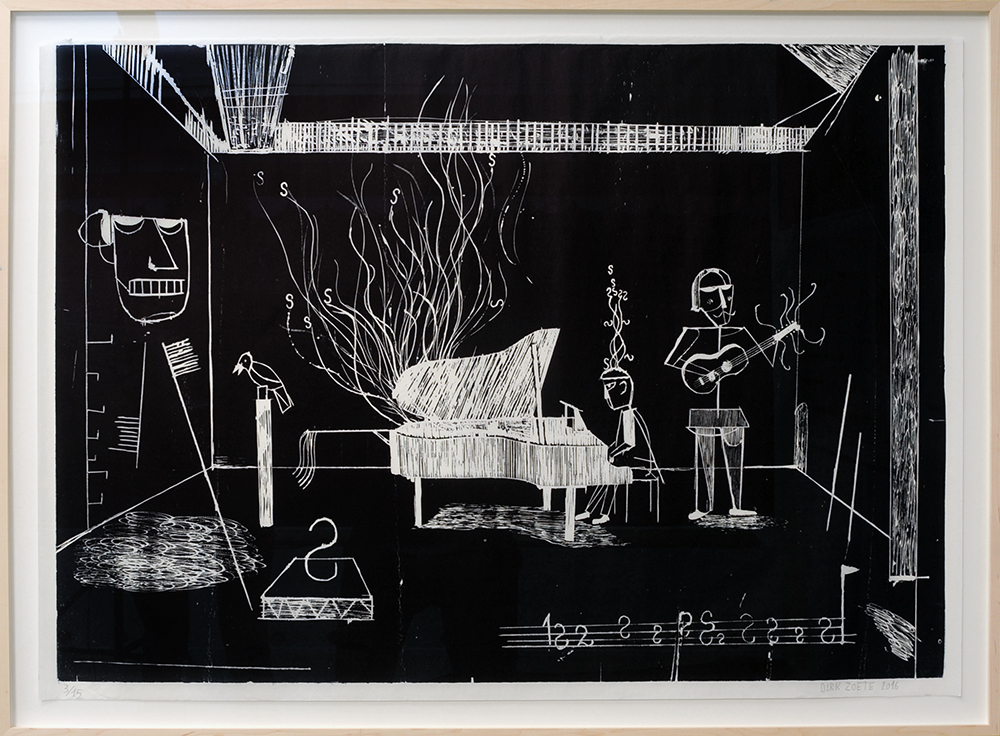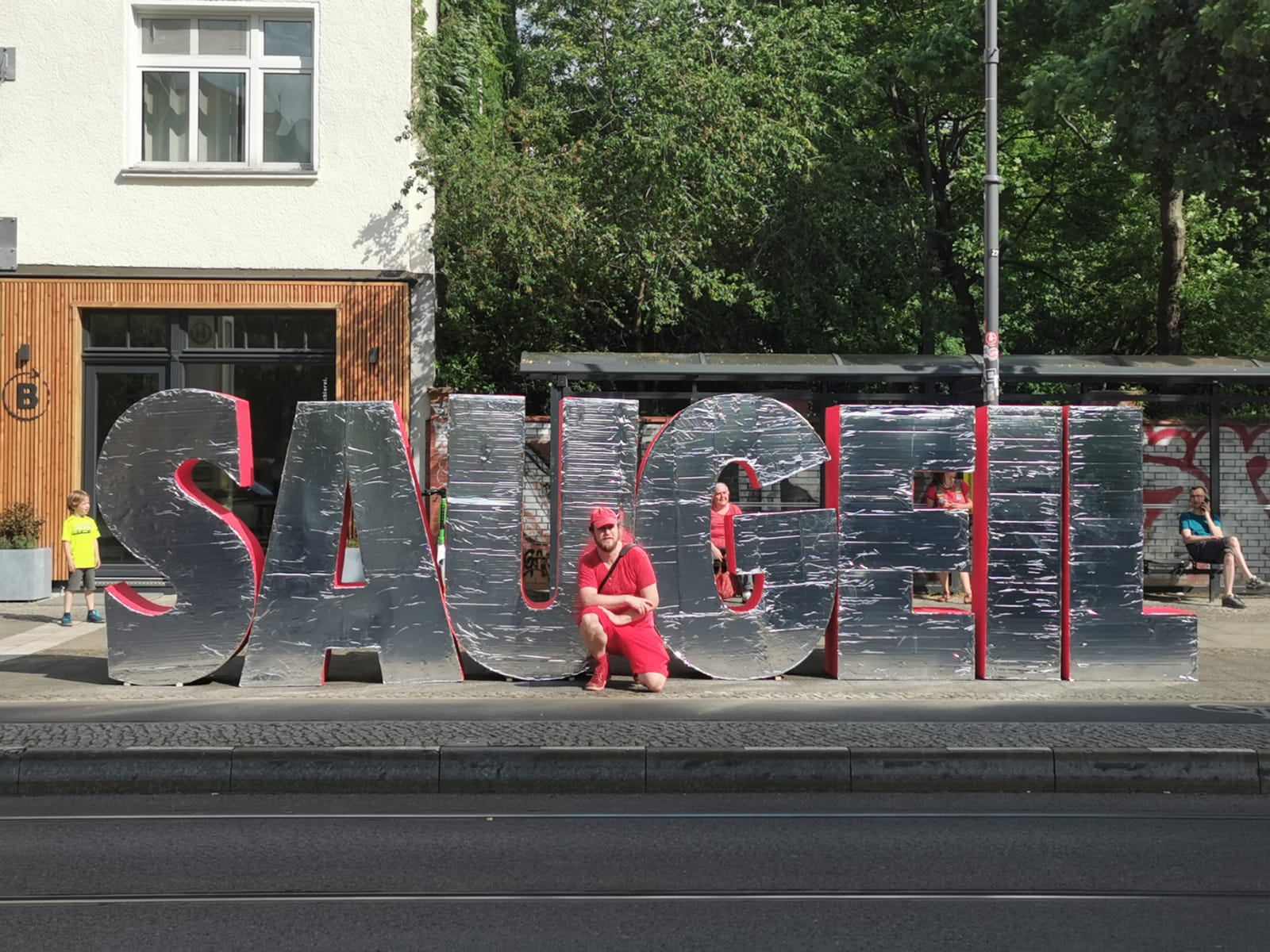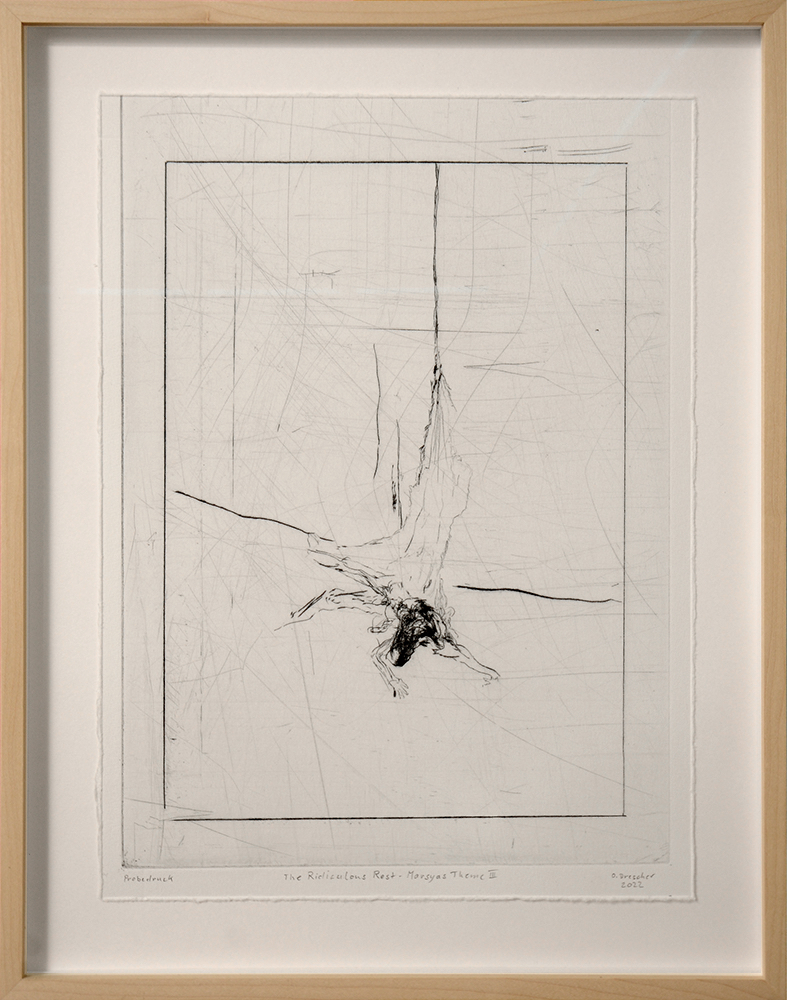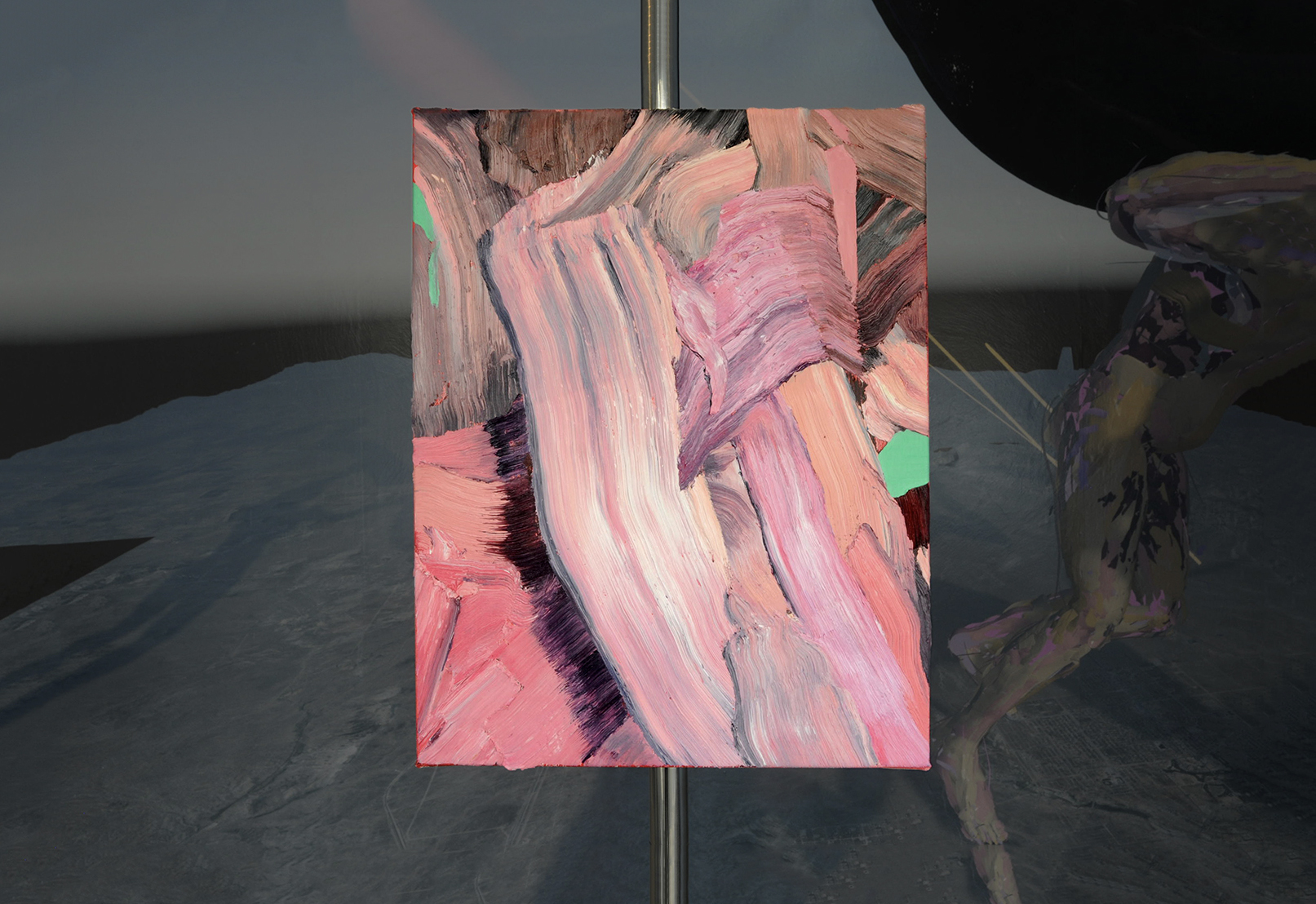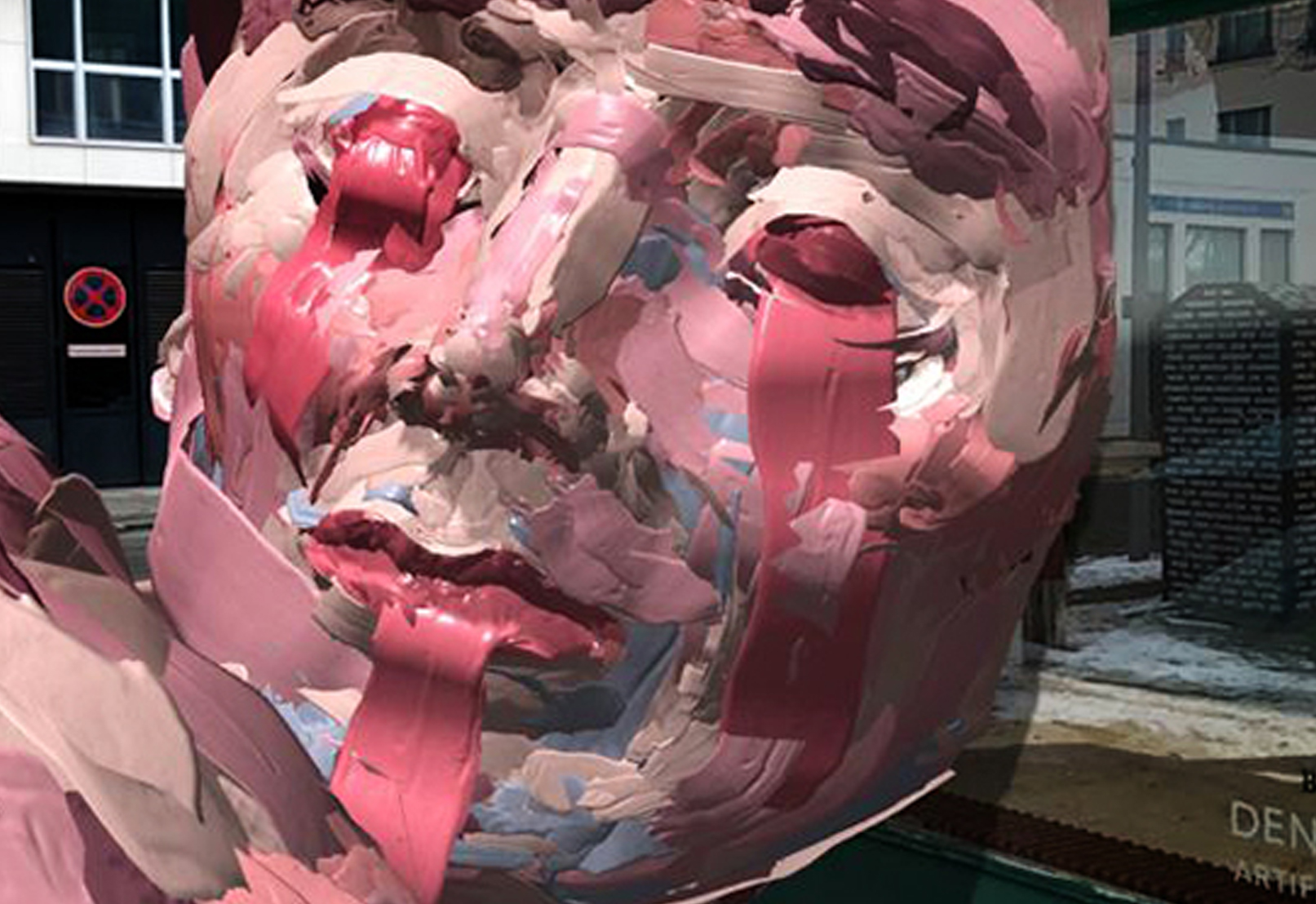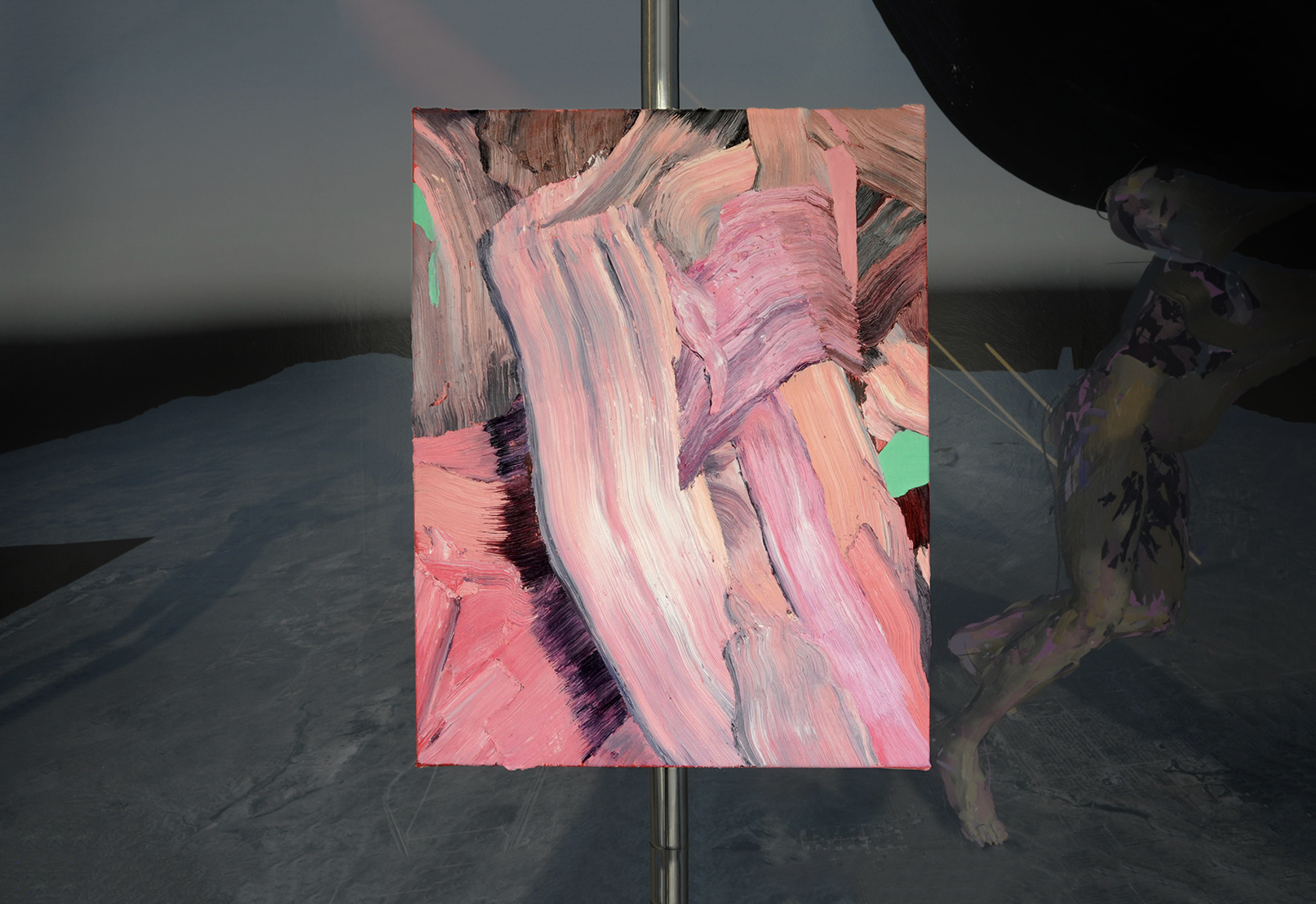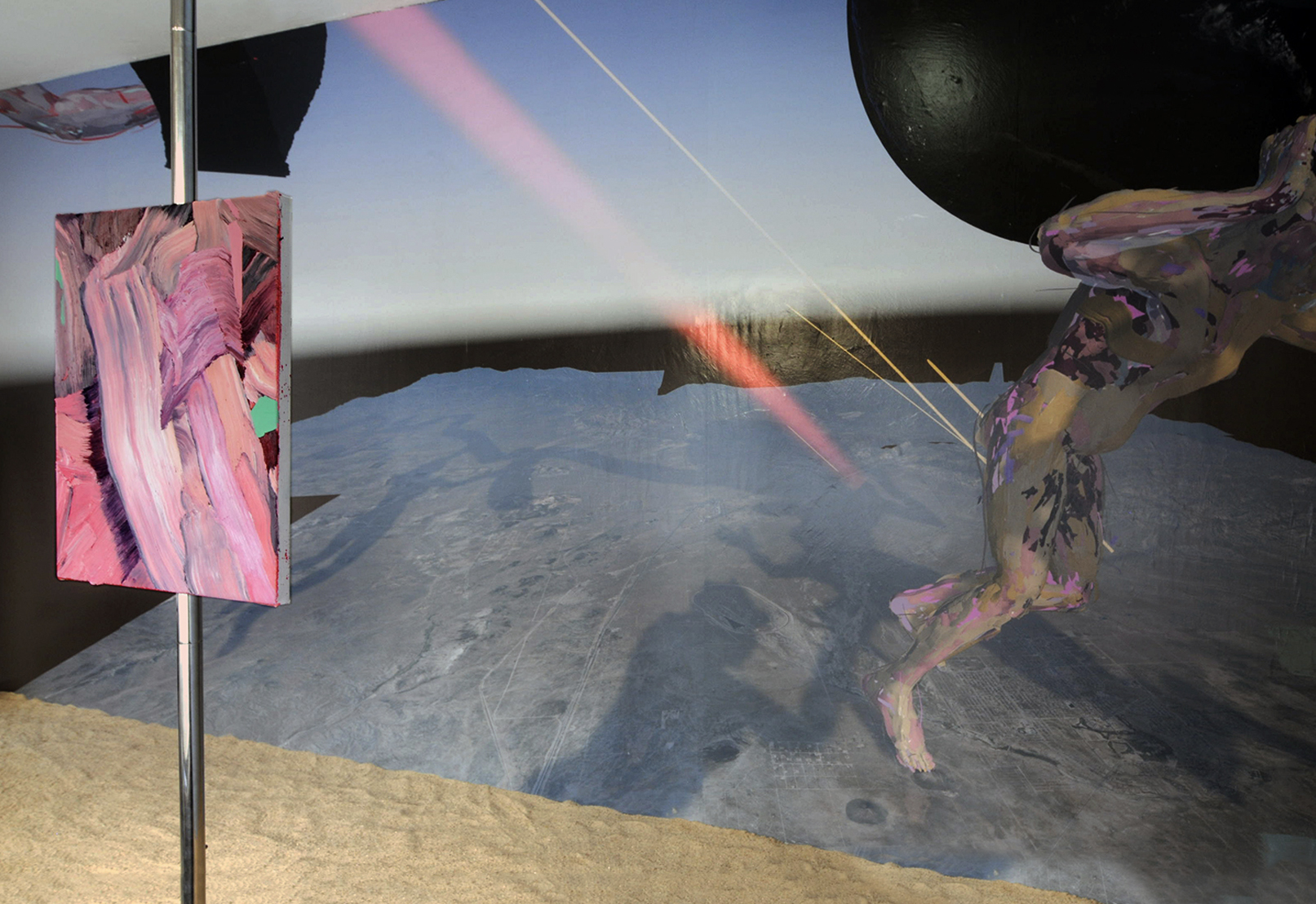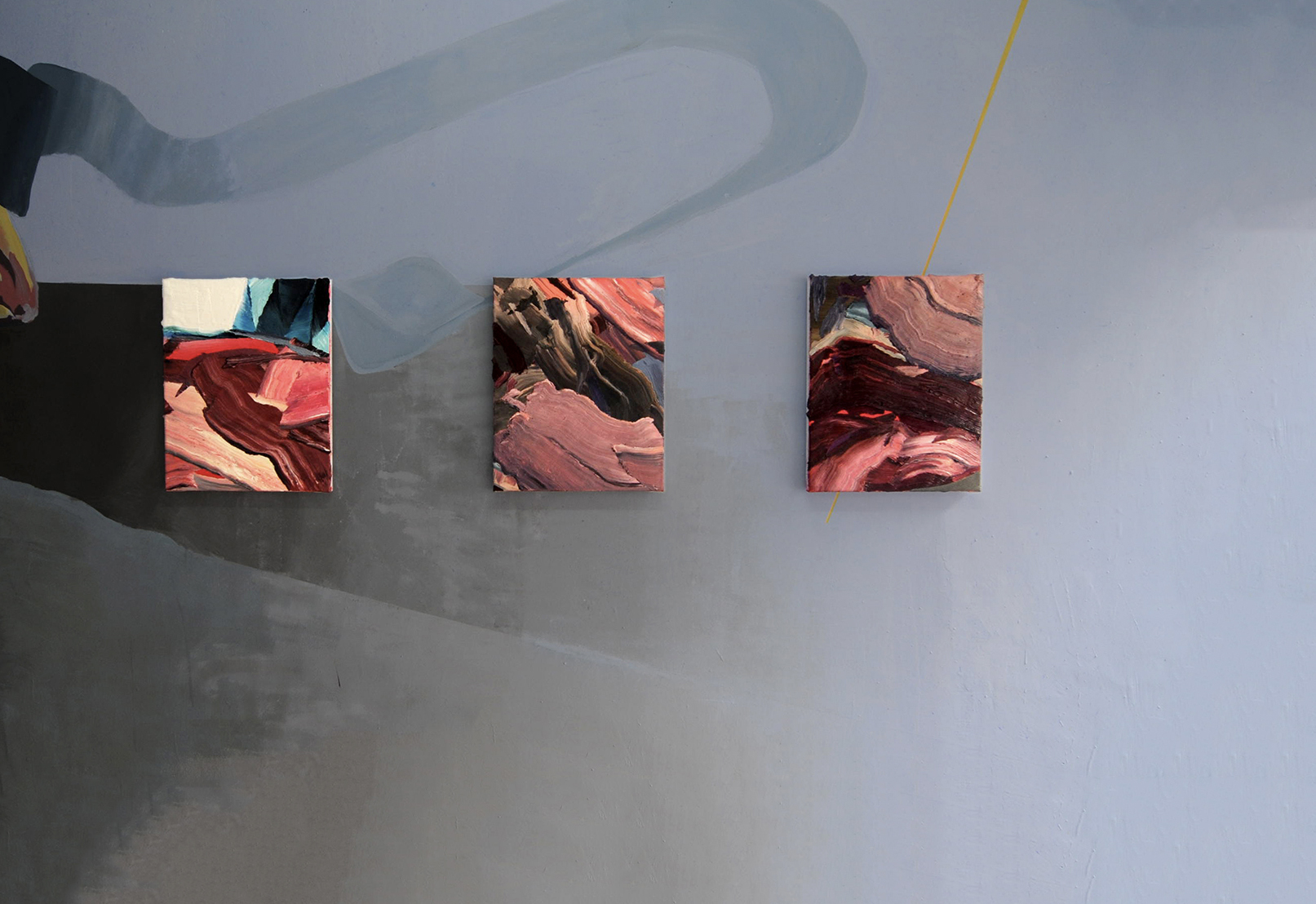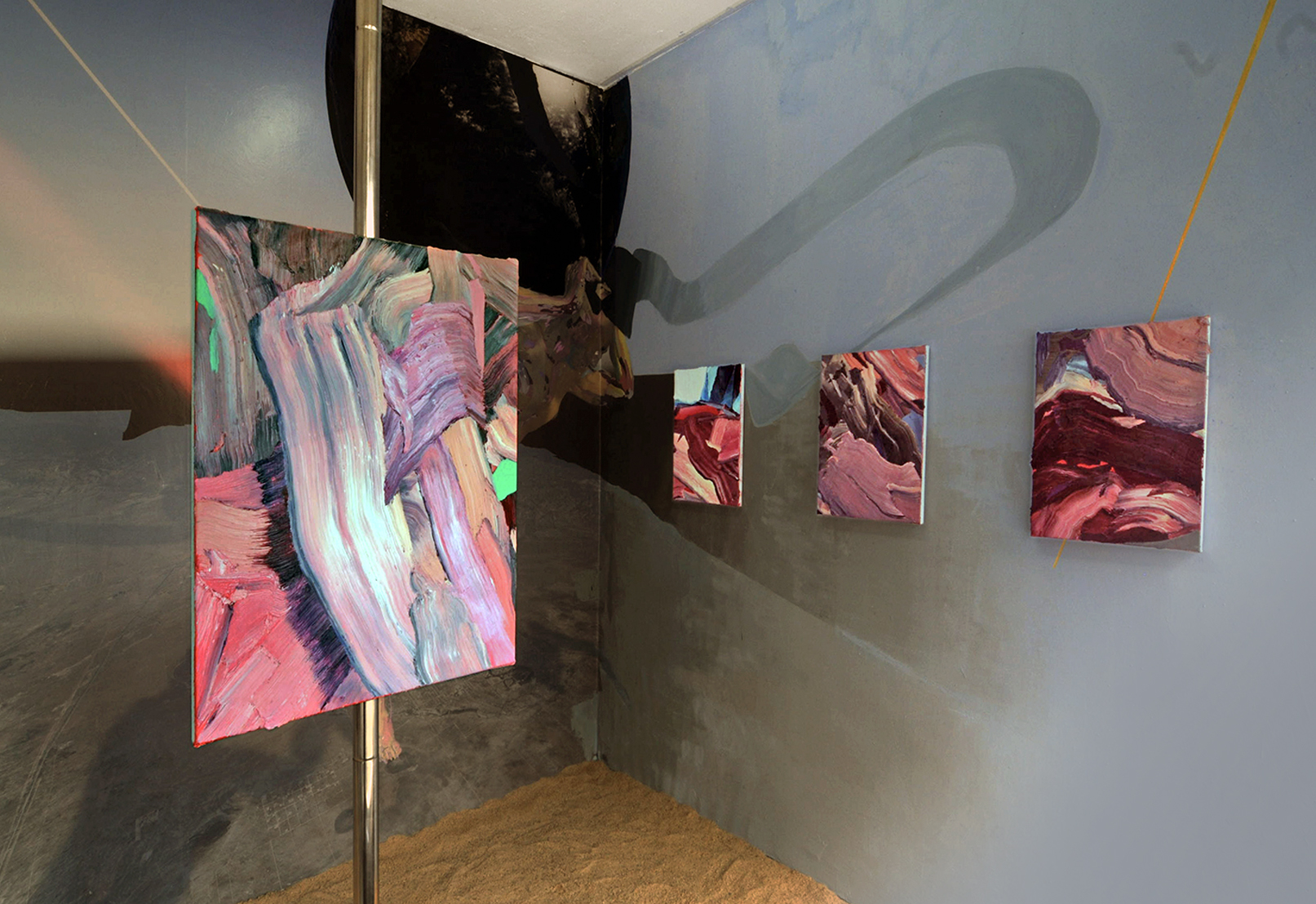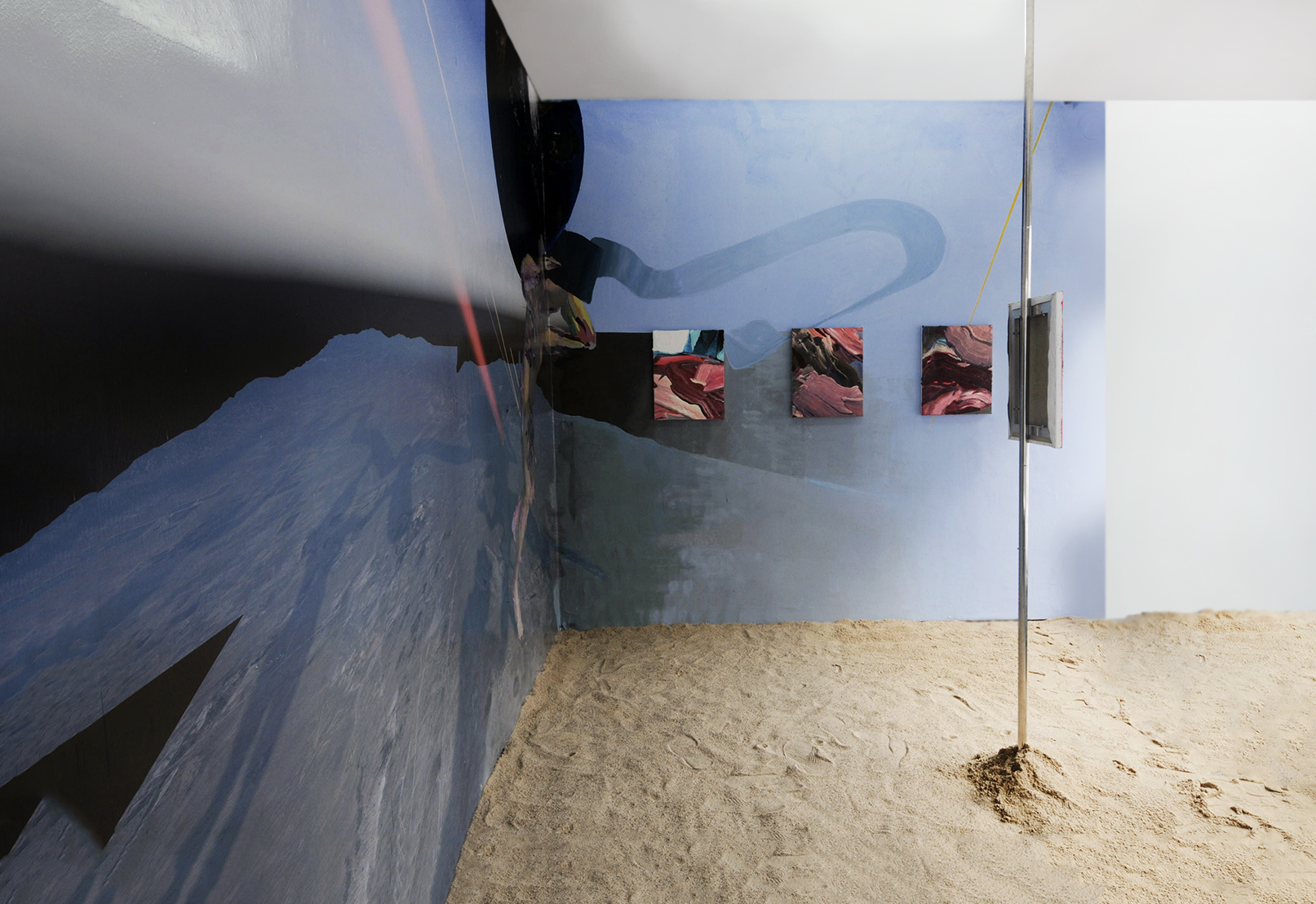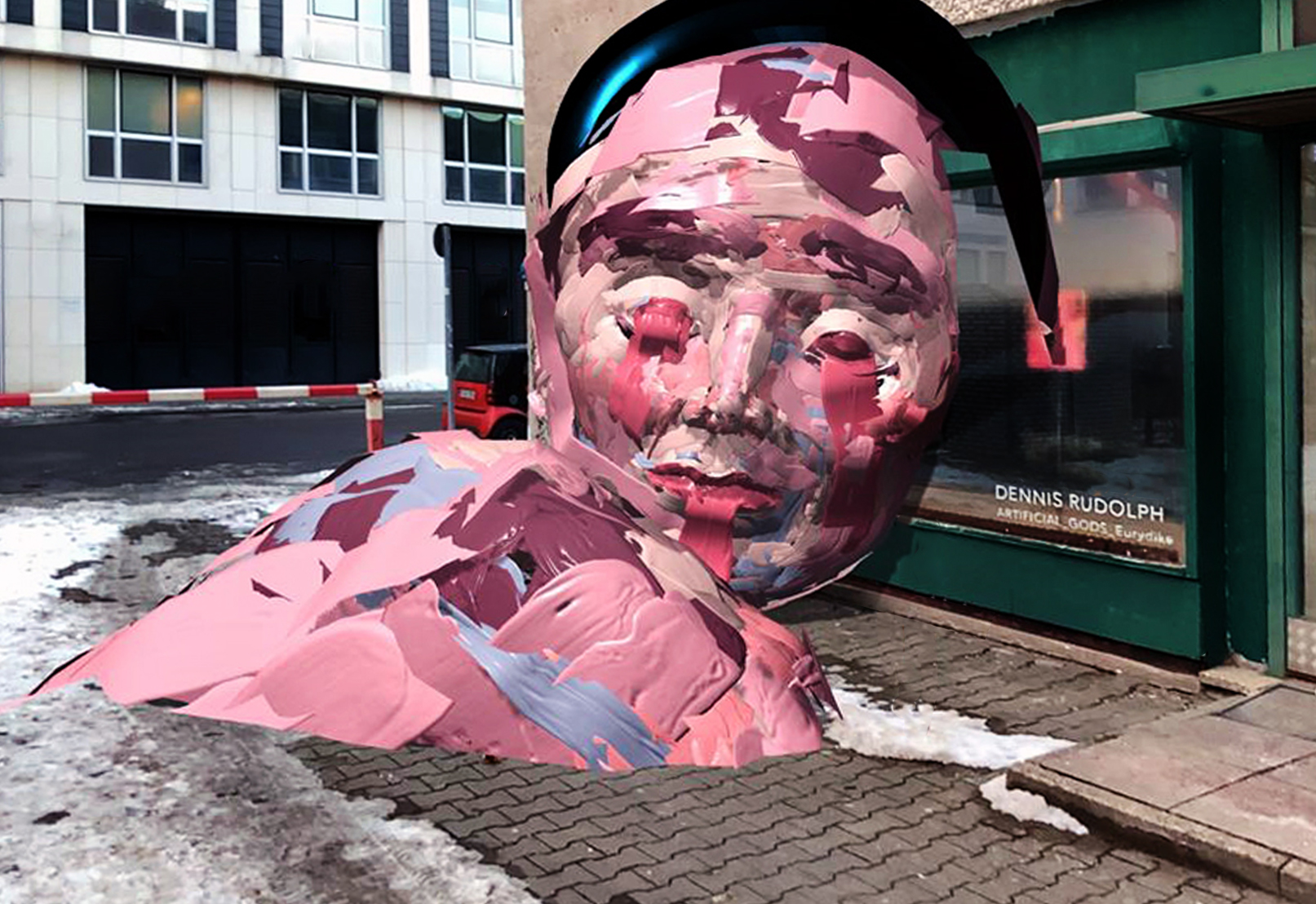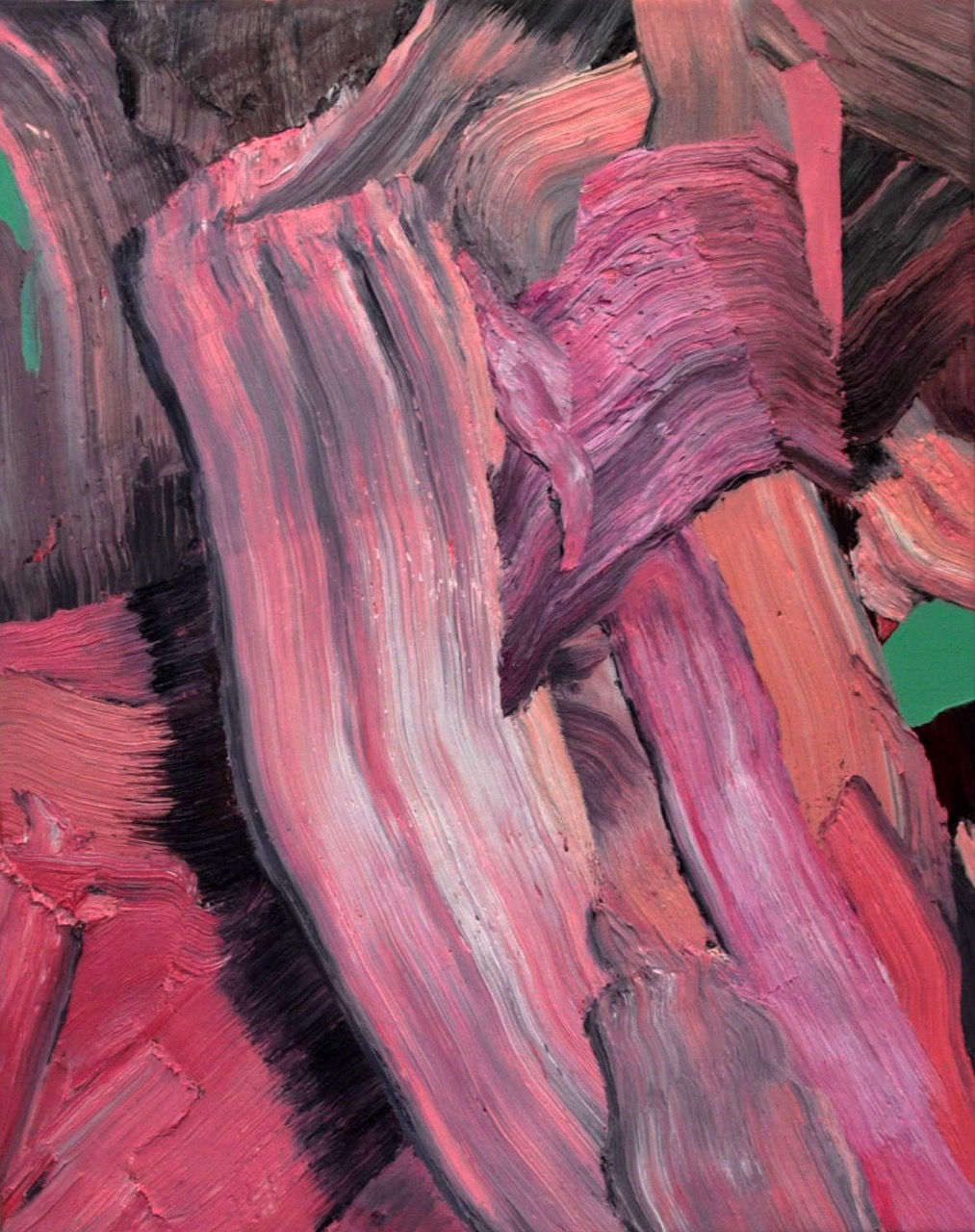Dennis Rudolph: ARTIFICIAL GODS Eurydike : Verena Kerfin Gallery, Köthener Strasse 28, Berlin 10963
Past
exhibition
Overview
In earlier days, the world was one cohesive entity, a singular, coherent structure that seemed to make sense. Then modernity arrived, shattering it into fragments. Dennis Rudolph steps into this fragmented landscape, aiming to piece it back together. The abstract painting, stripped of its object by Modernism a century ago, reclaims its place within a greater whole—one visible only through the lens of our smartphones. No longer confined to the wall in solitude, the oil painting extends into an expansive virtual landscape that envelops not only itself but every painting ever created.
Through Rudolph’s work, virtual reality ceases to be an ethereal, disconnected fantasy. Instead, it roots itself firmly in our physical world, tethered by the monumental pillars of mythology spanning five millennia. The smartphone, often dismissed as a mere tool of distraction and addiction, is transformed into an essential component of the artwork. The habitual gesture of pulling out a phone to take a picture is recontextualized; it turns the viewer into an active participant, an accomplice in the creation of the artwork. In this act, Rudolph interrupts the very automatism he manipulates, forcing us to confront our conditioned behaviors.
Dennis Rudolph positions us as executors of a humanity grappling with its own history. While we yearn to invent new worlds, we remain tethered to the past, perpetually glancing backward. This tension, between forward aspiration and backward reflection, becomes the core of his artistic exploration. Rudolph confronts us with our entanglement in this paradox, compelling us to step outside ourselves and confront the larger cultural forces at play.
Rudolph invokes the myth of Orpheus and Eurydice as a metaphor for our cultural condition. We are Orpheus, with the power to reshape the world through art and creativity. Cultural history is Eurydice—dead yet revived, fragile and bound by strict conditions. Rudolph forces us to confront the forbidden act: to turn around and look. In doing so, we watch as the gods we have created reclaim the undead Eurydice, dragging her back to the underworld—this time, forever.
Dennis Rudolph’s work becomes a mirror, reflecting our relationship with history, technology, and myth. It reveals our entanglement with the past while exposing our desire for innovation. By merging physical, digital, and mythological realms, he offers a poignant commentary on our inability to escape our own cultural narratives. In forcing us to act as Orpheus, he compels us to see not only the tragedy of looking back but the necessity of understanding ourselves within the endless cycle of creation, destruction, and memory.
Dietrich Brüggemann
Through Rudolph’s work, virtual reality ceases to be an ethereal, disconnected fantasy. Instead, it roots itself firmly in our physical world, tethered by the monumental pillars of mythology spanning five millennia. The smartphone, often dismissed as a mere tool of distraction and addiction, is transformed into an essential component of the artwork. The habitual gesture of pulling out a phone to take a picture is recontextualized; it turns the viewer into an active participant, an accomplice in the creation of the artwork. In this act, Rudolph interrupts the very automatism he manipulates, forcing us to confront our conditioned behaviors.
Dennis Rudolph positions us as executors of a humanity grappling with its own history. While we yearn to invent new worlds, we remain tethered to the past, perpetually glancing backward. This tension, between forward aspiration and backward reflection, becomes the core of his artistic exploration. Rudolph confronts us with our entanglement in this paradox, compelling us to step outside ourselves and confront the larger cultural forces at play.
Rudolph invokes the myth of Orpheus and Eurydice as a metaphor for our cultural condition. We are Orpheus, with the power to reshape the world through art and creativity. Cultural history is Eurydice—dead yet revived, fragile and bound by strict conditions. Rudolph forces us to confront the forbidden act: to turn around and look. In doing so, we watch as the gods we have created reclaim the undead Eurydice, dragging her back to the underworld—this time, forever.
Dennis Rudolph’s work becomes a mirror, reflecting our relationship with history, technology, and myth. It reveals our entanglement with the past while exposing our desire for innovation. By merging physical, digital, and mythological realms, he offers a poignant commentary on our inability to escape our own cultural narratives. In forcing us to act as Orpheus, he compels us to see not only the tragedy of looking back but the necessity of understanding ourselves within the endless cycle of creation, destruction, and memory.
Dietrich Brüggemann
Installation Views
×
![]()
Works
